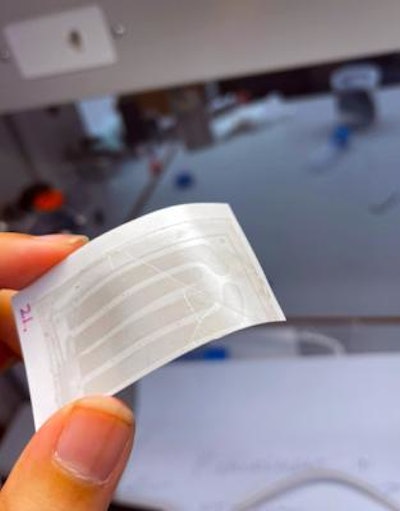
Northwestern
According to a recent Graphene Info article, researchers from Northwestern University and the University of Texas at Austin have developed a graphene-based cardiac implant that can measure heart function and electrical activity. The flexible implant can be placed directly on the surface of the heart, allowing for more accurate readings than traditional implants that are placed on the outside of the heart. The implant is also more durable than traditional implants and can last for several months, making it a promising tool for long-term monitoring of heart function.






















